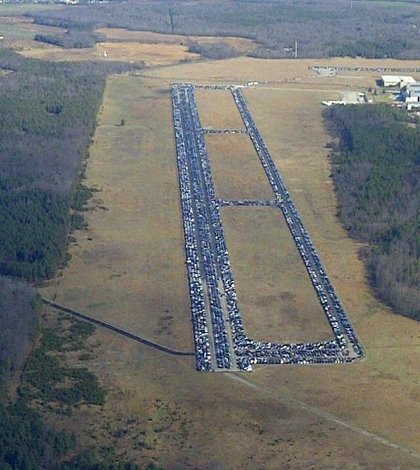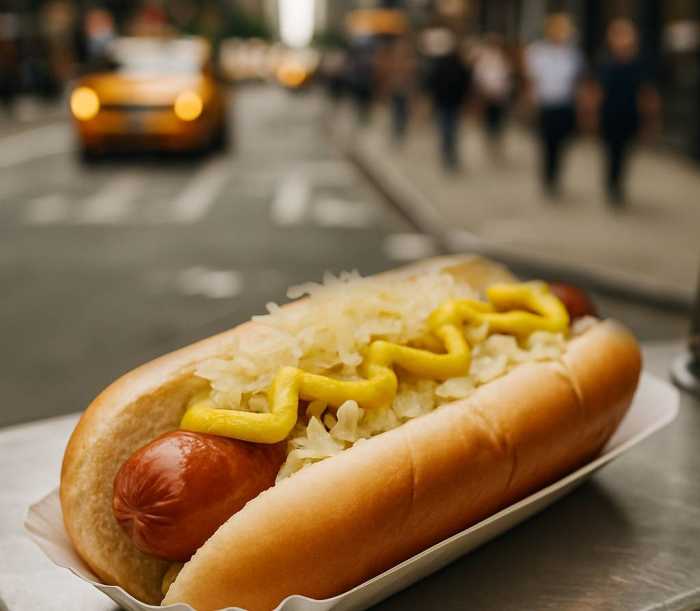
Thousands of Superstorm Sandy damaged vehicles being stored in parts of the Pine Barrens region are increasingly raising environmental concerns from officials and advocates worries about fluids leaking into nearby drinking and surface water supplies.
Opening arguments are slated to begin Friday in a lawsuit against an Eastport farm accused of illegally storing vehicles. Two weeks ago, Riverhead officials expanded a similar makeshift storage lot in Calverton. And New York State environmental officials are monitoring other unofficial junkyards that have been popping up since the storm.
“Superstorm Sandy was a natural disaster over which nobody had any control,” said Richard Amper, executive director of the not-for-profit Long Island Pine Barren Society, which advocates for open space preservation. “But the dumping of wrecked cars in drinking water protection areas represents a disaster of government’s own making if action is not swiftly taken to remove junk cars.”
Vehicles that were damaged by the Oct. 29 superstorm’s floodwaters were towed to storage lots set up by insurance companies and others. The companies hope to resell undamaged parts of the cars. But the damaged cars risk leaking gasoline, oil, anti-freeze and other toxins into adjacent wetlands or the ground before seeping into aquifers that serve as LI’s drinking water supply.
Suffolk County and Brookhaven town are suing Ringhoff Farm, claiming its owners illegally stored vehicles on land they were paid to preserve. The suit alleges the junkyard violates town zoning rules and the terms of a deal with the county, which bought the 140-acre farms’ developmental rights for $1.7 million.
“Suffolk County taxpayers did not purchase the Ringhoff Farm’s development rights in order for it to be used as a junkyard,” County Executive Steve Bellone has said. The farm’s owners did not return calls for comment.
According to Christopher P. Ring, the attorney for the Ringhoffs, as soon as the Ringhoff’s were told to ‘cease and desist,’ they immediately stopped allowing Sandy damaged cars onto their property and are in the process of removing them.
State Department of Environmental Conservation (DEC) agents first discovered the farm’s junkyard and then notified the county, whose investigators were initially denied access. Judge William Kent, who’s presiding over the case, has issued a temporary restraining order forbidding the farm from accepting more vehicles.
The Central Pine Barrens Joint Planning and Policy Commission reportedly cited the Ringhoffs this week for storing the damaged cars as well, which may bring additional legal action against the farm’s owners.
When other Sandy lots started popping up, the DEC issued statement reminding “landowners who are considering accepting vehicles on their properties to follow regulations designed to protect environmentally sensitive areas.”
Brookhaven Supervisor Ed Romaine and Southampton Town Supervisor Anna Throne-Holst also released a joint statement on the vehicle storage issue saying, “we must remain mindful of the potential for long term and costly consequences if proper and thorough environmental and safety precautions are not taken.”
The DEC said it also directed a Southampton sand mine owner to off a portion of the property that was regulated by a DEC permit and that the owner complied without being issued a violation, officials said.
While authorities continue to monitor such situations and the Ringhoff case has its day in court, Riverhead town leaders voted Dec. 27 to expand Insurance Auto Auctions Corp.’s storage of tens of thousands of vehicles on runways at the 2,900-acre Enterprise Park at Calverton (EPCAL), which falls within the Pine Barrens groundwater protection area. Riverhead, which has been trying to develop the property for years, earned $2 million by insurance companies to store the out-of-commission cars for up to a year.
But the DEC issued a notice of violation to Jan Burman, who owns a subdivision in EPCAL, and Copart, an insurance company that was storing Sandy damaged vehicles on his portion of the property deemed to be protected sensitive grasslands. The company declined to comment.
In addition to environmental concerns, critics are concerned that unscrupulous used car dealers may try to pawn off the damaged vehicles to unsuspecting buyers. But with big bucks to be made off scrapping the vehicles and storing them in the meantime, the problem will likely persist.
“This is not a Sandy relief for victims, this is a money making business proposition,” Amper said.






























